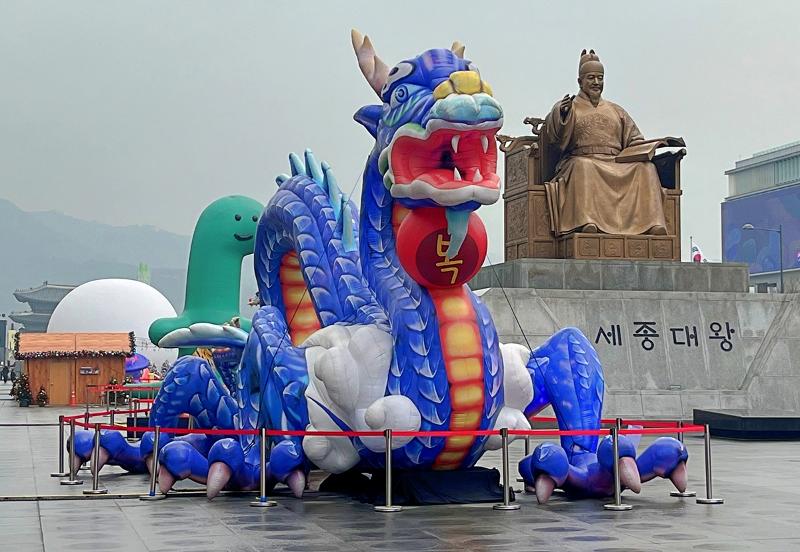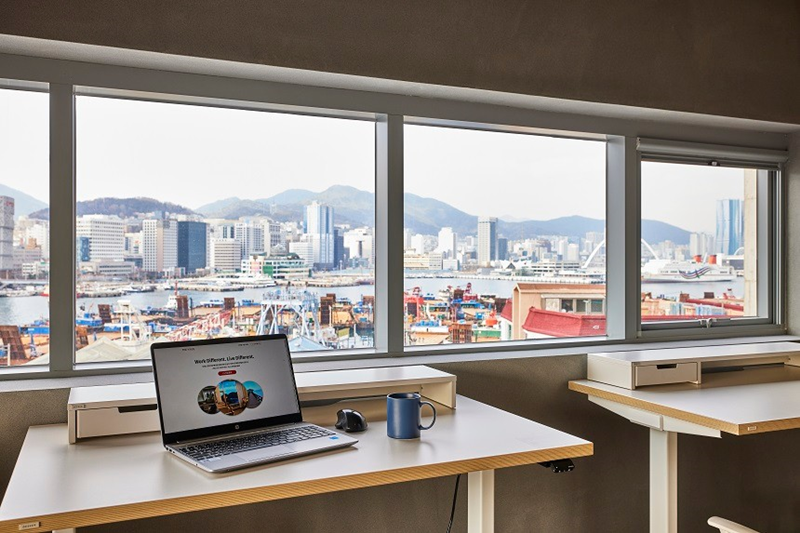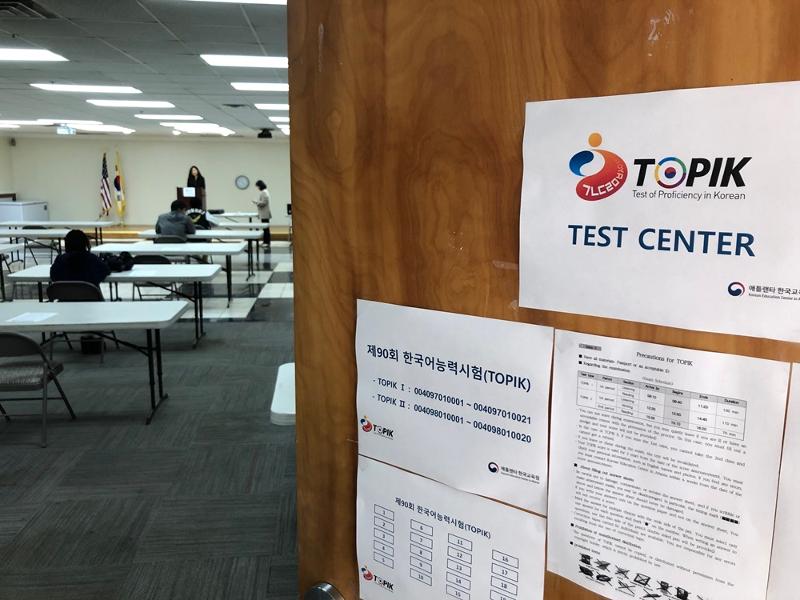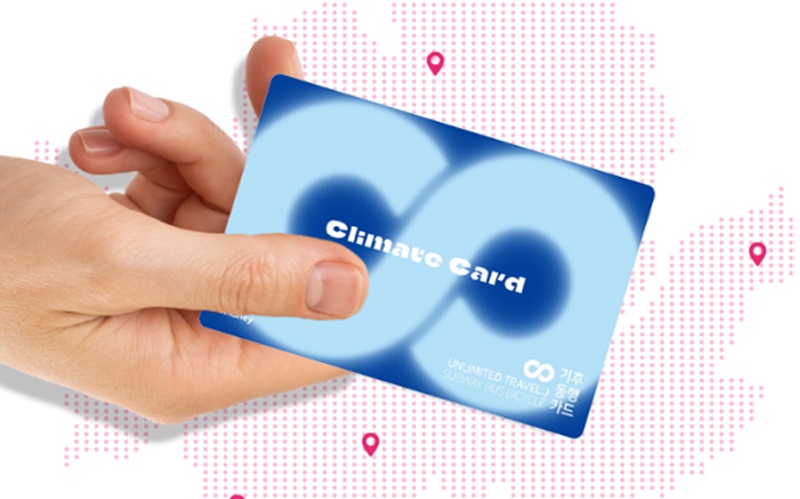Information Center
- Main page
- Information Center
- Government News
Government News
- Source
- KOREA.net
- Date
- 2024.01.04

This year will see the improvement of services and launch of new ones for expats and foreign visitors to the country in sectors like transportation, education and immigration-related tasks. Shown is a blue dragon sculpture at Gwanghwamun Square in Seoul's Jongno-gu District as 2024 is the Year of the Blue Dragon under the Asian zodiac. (Yoon Seungjin)
2024 will see improvement of programs and launch of new ones for expats and foreign visitors to the country in a variety of sectors. The following are major changes slated for this year that primarily affect both groups.
In labor, the application of the E-9 (non-professional work) visa has been expanded to the restaurant, forestry, mining, and hotel and condominium sectors and the visa's issuance volume has been raised to a record-high 165,000. Following designation in an eligible country and selection by a human resource center and vocational training institution, application for the E-9 for hiring foreign staff in the newly added sectors is possible as early as April, including for employment permits.

This is a digital nomad (workation) center in Busan. (Ministry of Culture, Sports and Tourism)
This year will also see the trial launch of a digital nomad or "workation" visa to attract such people from overseas to work remotely while traveling in Korea. The visa's duration has been extended from just 90 days to two years, and to get it, an applicant must work for a non-Korean employer and prove career experience and income above a designated level.
The minimum hourly wage is now 2.5% higher from KRW 9,620 last year to KRW 9,860, or a monthly salary based on 209 working hours of KRW 2,067,740. This rate applies to all workers regardless of employment type or nationality as well as those performing temporary, day or hourly work.

The Test of Proficiency in Korean this year will be given eight times abroad, double from four last year. (Atlanta Korean Education Center)
In education, the Test of Proficiency in Korean, aka TOPIK, will be given eight times abroad this year, double from four last year. The availability of the paper-based test has been expanded to 90 countries and that of the online version to 10.
This is to meet demand for studying in Korea in countries where such demand is rising to enhance the convenience of foreign students planning to study in the nation.
For multicultural families, support for their children and youth will be greatly expanded. The Ministry of Gender Equality and Family will boost support for basic learning as well as assistance for career planning, bilingual learning and educational activity fees.
The Ministry of Education will double the number of mentors and the Ministry of Employment and Labor will pilot specialized vocational training for multicultural youth through Korea Polytechnic University.
In transportation, the mass transit pass Climate Card, which allows use of nearly all modes of public transportation in Seoul except the Shin-Bundang Line, will start pilot operations from Jan. 27. Card holders can ride both city and shuttle buses licensed by the municipal government.
The basic card costs KRW 62,000 per month and the other for KRW 65,000 allows use of the city's public rental bicycle system Ttareungyi.
In addition, the immediate tax refund limit for foreign tourists at tax-free stores has been doubled. The ceiling at such stores for an immediate refund is KRW 1 million, up from KRW 500,000 last year, and KRW 5 million for such refunds for combined purchases, up from KRW 2.5 million.

The Seoul Metropolitan Government on Jan. 27 will release the transit pass Climate Card. (Seoul Metropolitan Government)
By Yoon Seungjin
scf2979@korea.kr